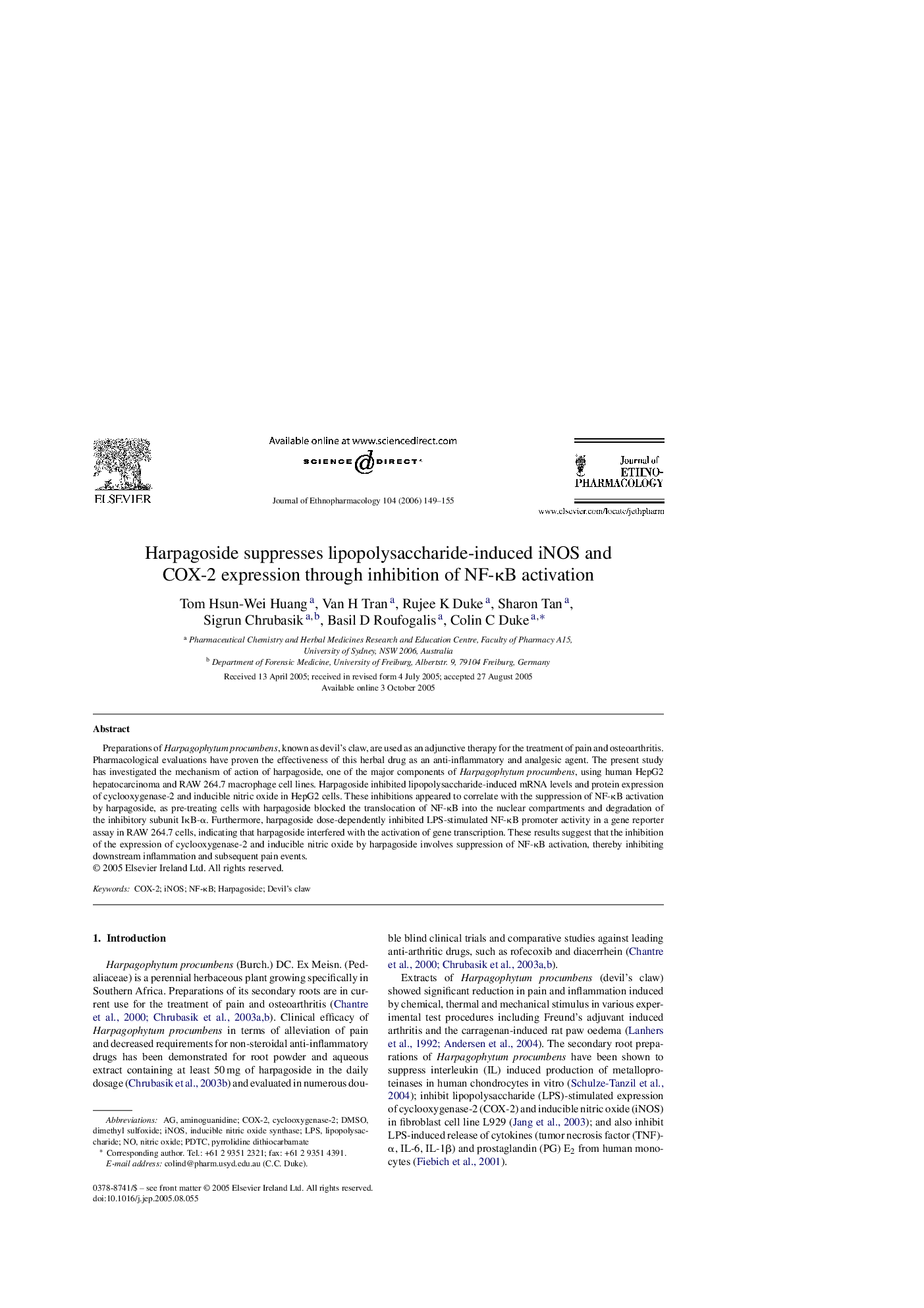| Article ID | Journal | Published Year | Pages | File Type |
|---|---|---|---|---|
| 2548625 | Journal of Ethnopharmacology | 2006 | 7 Pages |
Preparations of Harpagophytum procumbens, known as devil's claw, are used as an adjunctive therapy for the treatment of pain and osteoarthritis. Pharmacological evaluations have proven the effectiveness of this herbal drug as an anti-inflammatory and analgesic agent. The present study has investigated the mechanism of action of harpagoside, one of the major components of Harpagophytum procumbens, using human HepG2 hepatocarcinoma and RAW 264.7 macrophage cell lines. Harpagoside inhibited lipopolysaccharide-induced mRNA levels and protein expression of cyclooxygenase-2 and inducible nitric oxide in HepG2 cells. These inhibitions appeared to correlate with the suppression of NF-κB activation by harpagoside, as pre-treating cells with harpagoside blocked the translocation of NF-κB into the nuclear compartments and degradation of the inhibitory subunit IκB-α. Furthermore, harpagoside dose-dependently inhibited LPS-stimulated NF-κB promoter activity in a gene reporter assay in RAW 264.7 cells, indicating that harpagoside interfered with the activation of gene transcription. These results suggest that the inhibition of the expression of cyclooxygenase-2 and inducible nitric oxide by harpagoside involves suppression of NF-κB activation, thereby inhibiting downstream inflammation and subsequent pain events.
